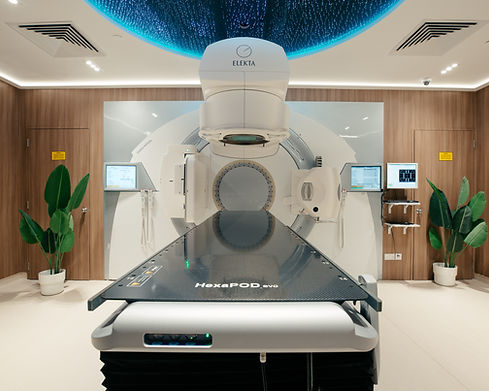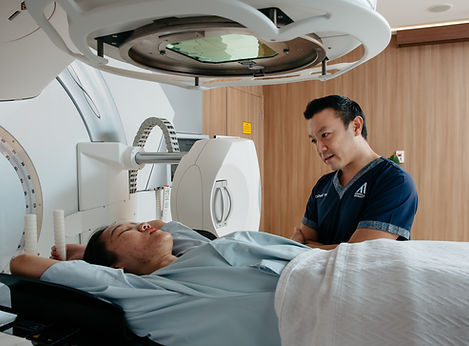
Lung Cancer Care with
Precision and Compassion
Lung cancer is among the most common cancers in Singapore and remains the leading cause of cancer-related deaths worldwide. At AARO, we approach treatment with a personalized, multidisciplinary strategy — uniting medical expertise, advanced technology, and compassionate care to give every patient the best possible chance at recovery.

Asian Alliance Radiation & Oncology
Founded in 2015, Asian Alliance Radiation & Oncology (AARO) is Singapore’s first independent radiation oncology clinic which has since grown to become an Oncology Group with its own radiation treatment center, ‘Centre for Stereotactic Radiosurgery’ situated at Adam Road.
Anchored by a multidisciplinary team of Oncologists and Healthcare Professionals who are well-versed in the latest cancer treatments and trends, AARO aims to provide a one-stop solution for each patient’s unique situation – delivering evidence-based medicine and personalized care.
DR DAVID TAN BOON HARN
Medical Director (AARO), Senior Consultant Radiation Oncologist
MBBS (SIN), FRCR (Clinical Oncology, UK), FAMS (Radiation Oncology)
Dr. David Tan is Medical Director and Senior Consultant Radiation Oncologist at Asian Alliance Radiation & Oncology (AARO), bringing with him over 15 years of experience in cancer care. Previously a Consultant Radiation Oncologist at the National Cancer Centre Singapore (NCCS), Dr. Tan played a key role in establishing the Liver and Pancreas Stereotactic Body Radiotherapy (SBRT) programs. A leading expert in the treatment of lung cancers, he is deeply committed to delivering precise, compassionate care to each of his patients.

PERSONALIZED LUNG CANCER TREATMENT
WITH PRECISION AND EXPERTISE
We understand that every cancer is different. That’s why we begin with a thorough assessment to create a treatment plan tailored to each person. Our experienced team offers advanced, less invasive options beyond traditional chemotherapy or surgery — treatments that are more targeted, with fewer side effects and better outcomes.

COMPREHENSIVE LUNG CANCER SOLUTION
Lung Stereotactic Ablative Radiosurgery [SABR]

What You Need To Know About Lung Cancer
$20.00 $5.00
This Ebook is created to provide cancer patients, caregivers, family and friends a compilation of the relevant resources that they can use to navigate their cancer journey.
Lung Cancer Ebook Content;
-
What is Lung Cancer
-
Lung Cancer In Women
-
Symptoms of Lung Cancer [ Early Stage & Later Stage Symptoms]
-
Diagnostic Test For Lung Cancer
-
Treatment Option
-
Potential Side Effects
-
Your First Consultation Toolkit
Our Insurance Panels
Please reach out to us to find out more on financing your treatment
Our Clinic Location
AARO @ Adam
Centre For Stereotactic
Radiosurgery
19 Adam Road,
Crawfurd Hospital
Basement 1
Singapore 289891
Mount Alvernia
Hospital
820 Thomson Rd #08-53
Mount Alvernia Medical
Centre Block D
Singapore 574623
Farrer Park Hospital
1 Farrer Park Station Road
#14-01
Farrer Park Medical
Centre © Connexion
Singapore 217562
Mount Elizabeth
Medical Centre
3 Mount Elizabeth #17-50
Singapore 228510
Gleneagles Hospital
6A Napier Road, Annexe
Block, #05-36C
Singapore 258500
Novena Medical Centre
10 Sinaran Drive #10-10
Novena Medical Centre
Square2
Singapore 3o7506

















